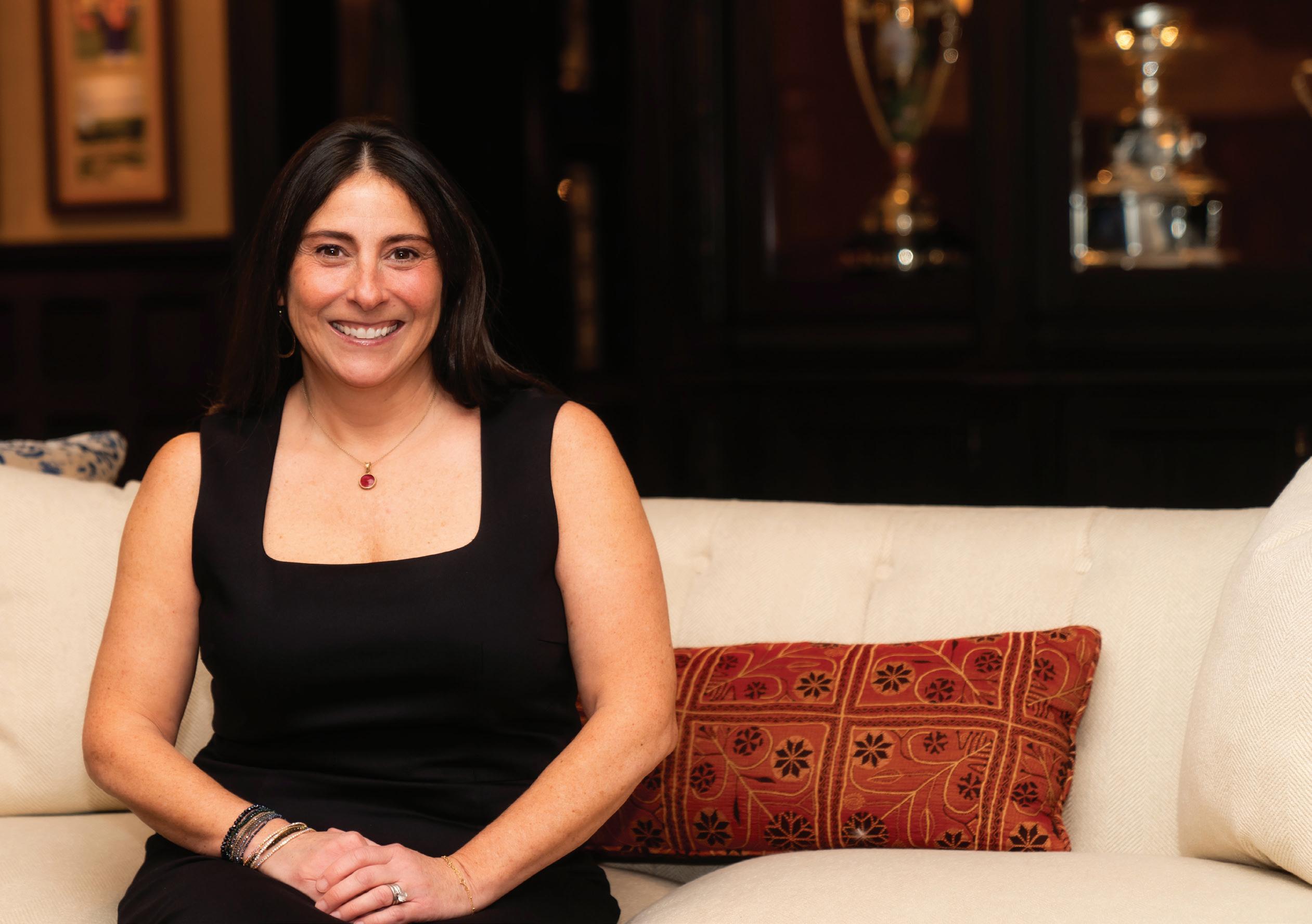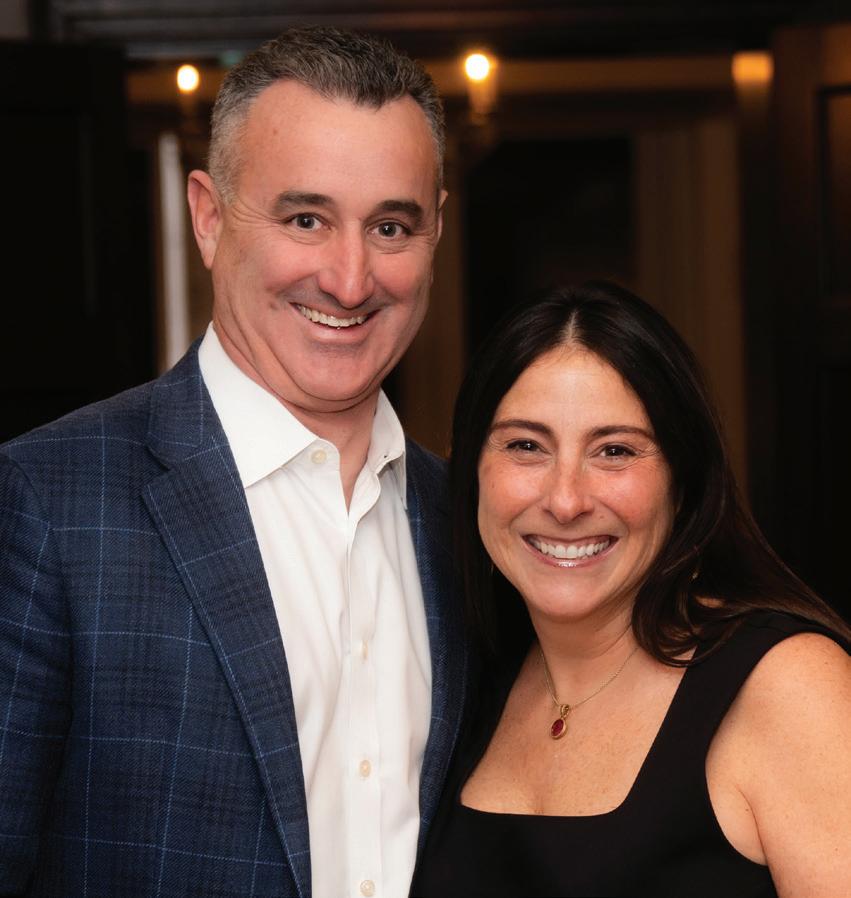
5 minute read
The Perks of Being an Underdog With Elizabeth A. (Boyle) Madden ’96
Alumni Profile: Elizabeth A. (Boyle) Madden '96
Growth Mindset Guides President’s Business Council Chair to the Next Challenge and Beyond.
On a warm day in October, a busload of Kania School of Management students arrived at New York City’s Sixty Pine Street for a President’s Business Council (PBC) Networking Reception they hoped would provide a sneak preview into the types of careers their Scranton degrees might help them build.
As these young voyagers introduced themselves to alumni from a four-decade span of grad years, it was clear that everyone in the room believed in the power of the Scranton network. The reception itself, after all, was proof of the network’s ability to connect established alumni with developing talent eager to soak up their wisdom, a veritable “win-win” for all involved. Moving adroitly through the crowd was one of the architects of the event, a founding member of the PBC who has given a great deal of her time, talent and treasure to its cause and who now finds herself, as its chair, presiding over a critical post-Covid inflection point in its storied history; her name is Elizabeth A. (Boyle) Madden ’96, and, if one of the eager young minds in attendance was to ask her to distill the secret of her success into a few short words, she might reply, “An underdog mentality and a growth mindset.”
Today, Madden isn’t anyone’s idea of an “underdog.” As the managing member of Compass Advisors and Coaching, the HR consulting and executive coaching business she recently founded, she utilizes some of her favorite parts of her former positions at Goldman Sachs & Co. and Davidson Kempner Capital Management to the benefit of her clients. She resides near the beach in Lake Como, New Jersey, with her husband, Michael Madden ’95, founding partner, St. Thomas Aquinas Private Long Term Equity, and their two children, whom she has been able to spend more time with since she became her own boss. And, in her role as chair of the PBC, she has become the very sort of person she once looked up to: the mover and shaker who is never too busy to help a fellow Royal if she can. But, when she was first starting out, she often felt the sting of imposter syndrome, especially when she compared the Ivy League credentials of some of her former competitors with her own accomplishments, which were largely still ahead of her. How did she find the strength and resolve to become a leader in a room full of leaders?
“The University taught me confidence in who I was that was foundational for me to … be the underdog, or not be afraid of conflict, or be brave enough to stretch outside my comfort zone,” she said. “That has obviously helped me throughout my career, and that’s part of the reason why I continue to give to the University through the PBC.”
The PBC 2.0?
When Madden first joined the PBC, she was its youngest member, and she never imagined she would one day find herself leading it.
“I remember (saying) 20+ years ago, ‘I’ll never be an honoree, and I’ll never chair the PBC,’” she laughed. “And, here I am, chairing the PBC.”
What changed? Madden said her experiences mentoring and coaching students illuminated the transformative power of the organization.
“I look at the PBC as opening up doors for students that they may not have ever thought were possible,” she said. “The PBC gives them that foundation of opportunity.”
Since taking the helm, Madden has placed renewed emphasis on the PBC’s three pillars: mentoring, internships and philanthropy.
The greatest gifts (alumni) can share with a student are time and experience,” she said. “It literally can change the course of a young person’s life. I love that, and that’s why I continue to show up.”
— Elizabeth A. (Boyle) Madden ’96
“We’ve had an amazing generation before us that has really built this magnificent mechanism for philanthropy and connectivity, and, with any sort of growth, there is the opportunity to take it forward, especially post-Covid,” she said. “We are not looking to change the core mission at all; the idea is to engage this next generation of PBC leaders.”
Madden said she hopes to attract new members by offering more opportunities for mentoring and internships, and she’s confident that the altruism of her fellow alumni will continue to pave the way forward for the next generation of Royals. And, her focus on diversifying membership across several generations is already beginning to pay off as the PBC welcomed 12 new members to its executive council at the council’s January meeting.
“The greatest gifts (alumni) can share with a student are time and experience,” she said. “It literally can change the course of a young person’s life. I love that, and that’s why I continue to show up.”






